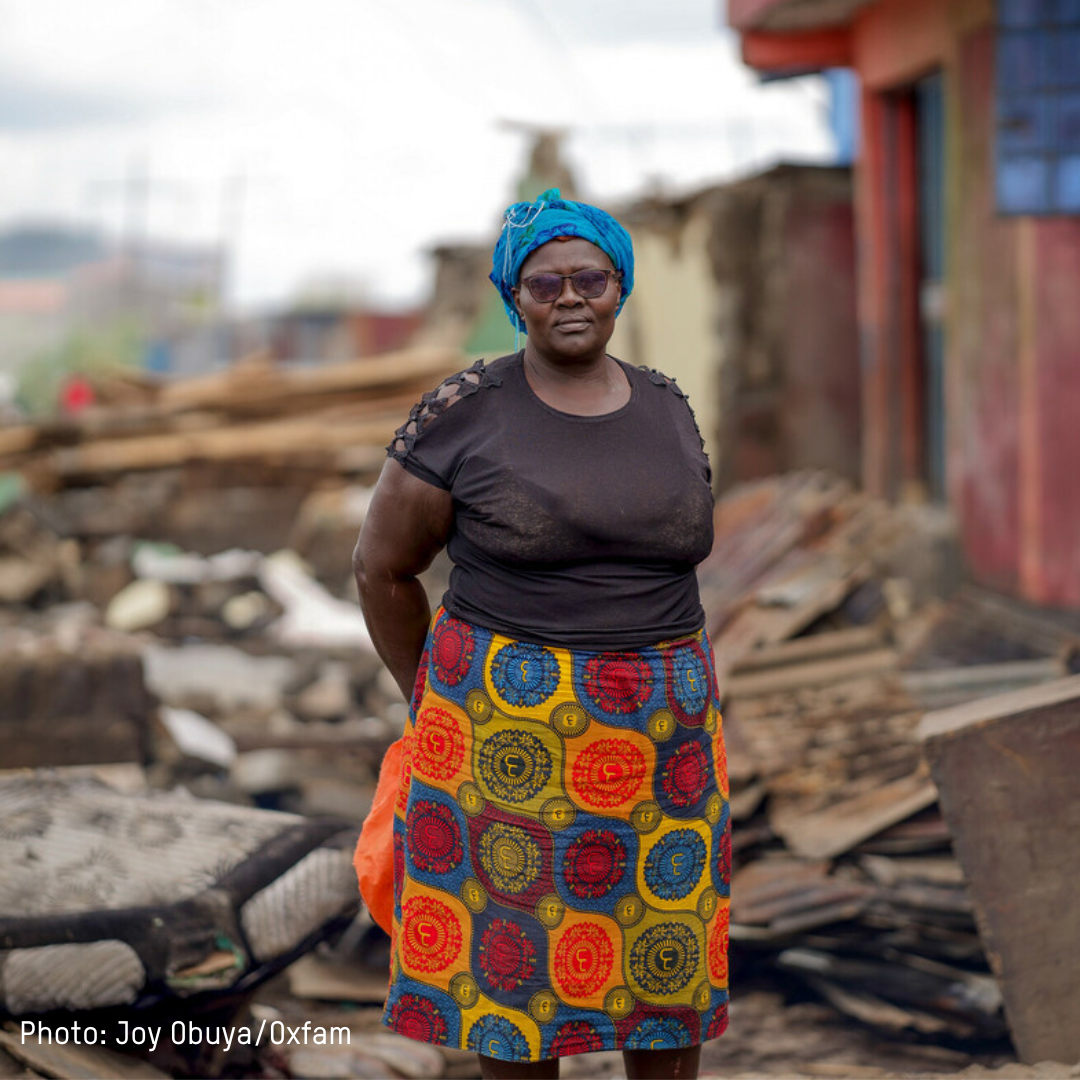The Scottish Government has announced it will give a total of £250,000 in humanitarian funding to help survivors of unprecedented flooding in the Kenyan capital Nairobi.
The Scottish Government’s money has been split between Oxfam Scotland and Islamic Relief. Each agency’s response will receive £125,000.
Recent heavy rainfall has affected over 400,000 people across Kenya, leaving 350 dead or missing and forcing over 100,000 people from their homes in Nairobi alone. The relentless downpours have transformed roads into waterways, overflowed rivers and sewers, and destroyed homes.
Following the flooding, a government directive was issued resulting in many of the homes in Nairobi’s informal settlements being demolished.
Anne Mbuthia, a mother of seven from Landmawe, vividly recounts the chaos: “When it started raining, we thought it was normal rains, but then it started getting into the houses. By the second week, there was flooding and household items were soaked in water. Then the tractors came and tore down our homes. We lost hope because we didn’t have money to rent a house. Life changed for me. I ended up taking shelter in a local church.”
The funding, which comes from the Scottish Government’s Humanitarian Emergency Fund, will enable Oxfam and our partners to deliver urgent humanitarian assistance to many people like Anne, reaching 1,445 flood-affected women and their households in Nairobi’s flood hit informal settlements of Mathare, Mukuru, Kayole, and Kibagare.
People will be provided with access to cash as well as water tokens to provide access to clean water through prepaid water dispensers. Community led hygiene promotion campaigns will also be conducted to reach 30,000 people, helping to prevent the spread of waterborne diseases.
In addition to addressing the immediate need for clean water, the Scottish Government’s funding will also support survivors of gender-based violence (GBV), which has increased due to the floods. Mental health support and counselling services will be provided, along with coverage of medical expenses for GBV survivors.
Nelson Munyiri, Executive Director of Mukuru Youth Initiative, one of five local organisations who will work with Oxfam as part of the response, said: “Mukuru is an informal settlement and so many families are affected by the recent floods. We are appealing for support for families to get their livelihoods back. They are losing their food, their shelter, and even their loved ones during the floods. We are working with Oxfam to be able to support the many families affected.”
The climate crisis has made extreme weather events in Kenya more frequent and severe. Just six months ago, flash floods displaced over half a million people, destroying thousands of homes and decimating farms. This came on the heels of a prolonged drought that had already left over 4.5 million people in severe hunger due to severe food shortages and massive livestock losses.
Mat Cousins, Oxfam in Kenya’s Humanitarian Lead, said: “The Scottish Government’s contribution is a lifeline for many families in Nairobi’s informal settlements who have lost everything to the floods. This funding will not only address immediate needs such as clean water and shelter but also provide crucial support for women and girls facing heightened risks of gender-based violence. We are grateful for this solidarity in such challenging times and hope it inspires other governments and members of the public to provide similar life-saving support.”
The Humanitarian Emergency Fund Panel, which features eight leading humanitarian organisations in Scotland, collaboratively recommend projects for Scottish Government support. Crucially, the Fund does not just respond to high-profile emergencies like Gaza or Ukraine, but also to those crises that unfold well away from the world’s attention.
Please, if you can, donate to Oxfam’s Emergency Response work globally.
